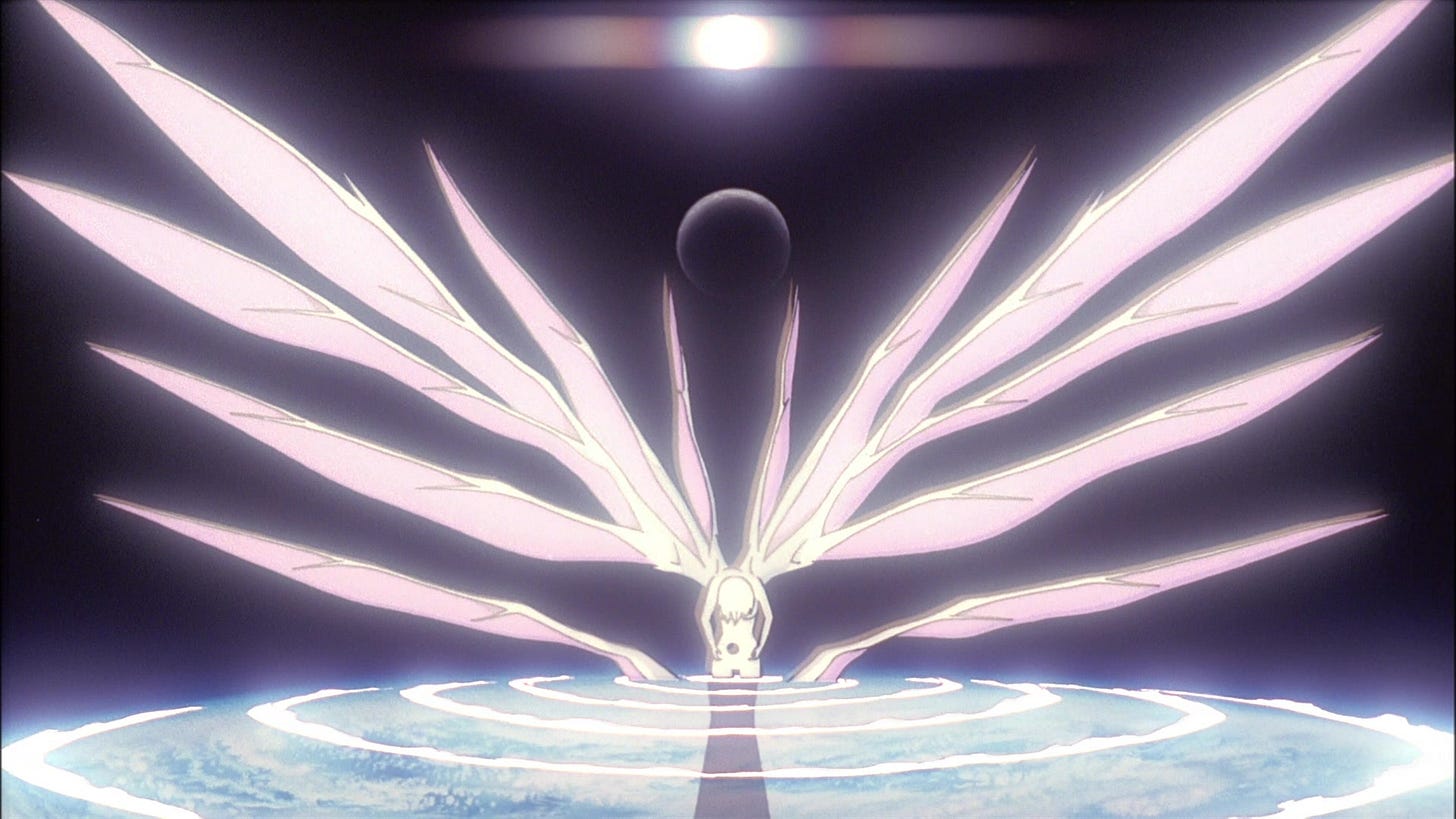To the extent that I’ve cultivated a particular approach to Evangelion, it’s that I’ve tried to stay text-focused. We are “naive watchers.” There are a few places this approach shows its limits, and End of Evangelion is one. That is because this movie primarily (only?) exists because people simultaneously loved Evangelion so much they propelled it to a Star Wars–level ability to print money and they hated its abstract, surreal finale.1
I don’t think you can just bracket that out, because that Anno is partly reacting to the backlash to the ending of the show is in the text.2 He puts fictionalized versions of emails he got in the movie. The movie itself suggests that it exists to punish you—yes, you!—for being so annoying.3 End of Evangelion comes aggressively out of the gate with a scene where Shinji masturbates over Asuka’s comatose body, which I again feel is Anno saying: Oh, so you, a creepy little nerd, wanted an Asuka body pillow? That’s what I think of you. Are you happy now? I hope…


